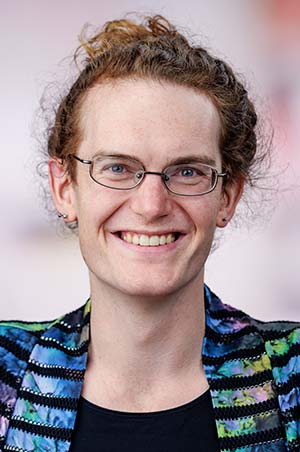Nasa Sinnott-Armstrong, PhD
Assistant Professor, Herbold Computational Biology Program
Public Health Sciences Division, Fred Hutch
Member
Translational Data Science Integrated Research Center (TDS IRC), Fred Hutch
Dr. Nasa Sinnott-Armstrong is a professor within the Herbold Computational Biology Program of the Public Health Sciences Division. Their research focuses on understanding genotype-phenotype mapping, including modeling of gene-environment interactions. Sinnott-Armstrong focuses much of their work on cardiometabolic and pulmonary diseases, using both computational and experimental methods to address questions around causal mechanism and heterogeneity between individuals. They are developing a novel mediation-based framework that combines environmental shocks with polygenic risk scores of intermediate traits, such as lipids and inflammation. With this framework, they hope to quantify the molecular mechanisms of the environment on numerous disease outcomes by estimating the proportion of risk that can be attributed to each intermediate trait, followed by high-throughput methods for in vitro and ex vivo validation. Previous to joining the Hutch, Sinnott-Armstrong worked in population and statistical genetics at Stanford University, researching methods to understand the molecular and cellular basis of complex traits; gene-environment interactions of cardiometabolic and pulmonary traits; quantifying the mechanism of air quality’s effect on health and the wastewater-based epidemiology of SARS-CoV-2.
Education
PhD, Genetics, Stanford University, 2022
MS, Environmental Global Health, Stanford University, 2022
ScM, Computer Science, Brown University, 2014
AB, Archaeology, Brown University, 2014
ScB, Computational Biology, Brown University, 2014
Research Interests
Genotype-phenotype mapping
Gene-environment interactions
Cardiometabolic and pulmonary diseases
Polygenic risk scores
